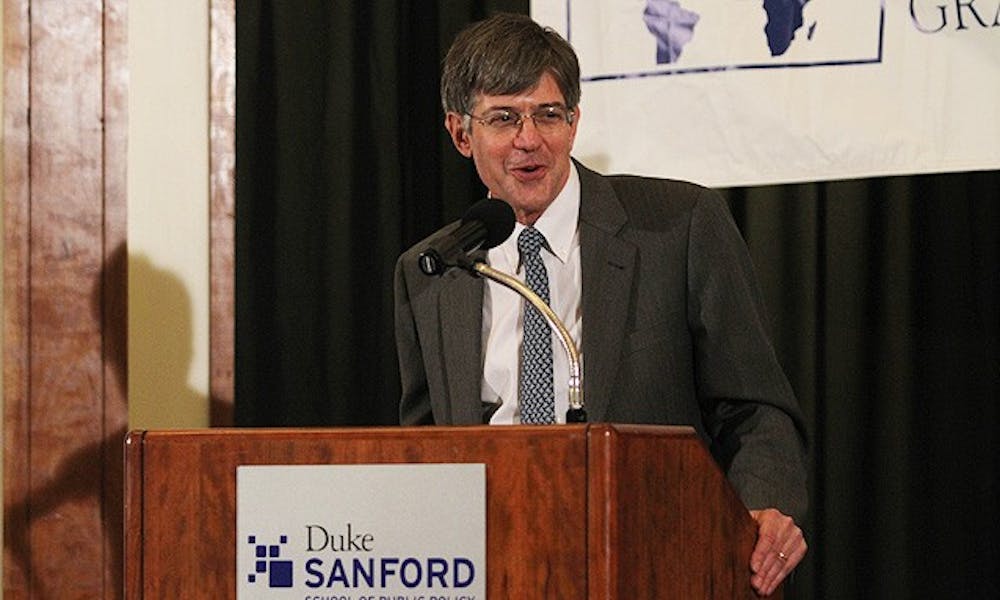Recent international developments have reinforced the need for cooperation with global partners in American foreign policy, the nation’s number two diplomat said Monday.
Deputy Secretary of State James Steinberg focused on American foreign policy under President Barack Obama and emphasized the strength of multilateralism as an approach to foreign relations in his lecture in the Sanford School of Public Policy.
“History is accelerating [the changes in foreign policy],” he said. “In the 21st century, [the State Department] is working on a broad range of newer challenges, such as terrorists, climate change, cyber security and popular movements.”
Steinberg began his presentation by highlighting two “core convictions” of the State Department’s approach to diplomacy.
“First, no nation can seize an opportunity on its own. There is always a need for international cooperation,” Steinberg noted. “Second, there is no invisible hand to bring the supply of cooperation—there are deep obstacles to cooperation.”
Although it is important for the U.S. to defend its national interests, Steinberg said the State Department recognizes “the value of fostering relationships and the need for institutions and arrangements among those with diverse interests.”
He pointed to Secretary of State Hillary Clinton’s call for a “global architecture of cooperation” as an embodiment of the State Department’s values with respect to foreign relations. The U.S. is uniquely positioned to help overcome the barriers impeding international cooperation, he noted, because it has fostered goodwill in many parts of the world since World War II.
He cited recent work with the European Union and the North Atlantic Treaty Organization on issues such as Iran’s nuclear ambitions and democracy in the Middle East as “evidence of the vitality of [the U.S.] partnership” with European allies. Steinberg also emphasized partnerships with Japan, South Korea and Australia as critical to resolving concerns about nuclear proliferation in North Korea and climate change.
He drew attention to the presence of growing powers such as India and China, describing India as “an indispensable partner” whose importance has increased to an unprecedented level. Steinberg also spoke of China’s growth as a international power and its complicated diplomatic relationship with the U.S.
“China doesn’t fit into a black-and-white category of friend or rival,” he said. “Still, there is scarcely a problem that can’t be solved with [the U.S. and China] working together.”
Despite the growing collaboration between the two governments, the State Department continues to emphasize American opposition to human rights abuses and a lack of democracy to the Chinese government, he noted.
Steinberg said although nation-states remain important in the world of international relations, powerful non-state actors have shown the limits of government power, specifically the greater role of civil society in foreign relations. He attributed the trend to the growing popularity of social networking.
“Civil society is a leg of a three-legged stool along with private corporations and national governments,” he explained. “[The State Department] is not imposing its own preferences but supporting others in their own pursuit of political freedom.”
He related the broader discussion of the role of civil society to the recent popular uprising in Egypt and the process of creating a democratic government there. He noted that the U.S. will direct $150 million in foreign aid to assist Egypt’s transition to democracy.
“One of every five Arabs is an Egyptian,” he explained. “A thriving democracy in Egypt would strike a violent blow to al-Qaida’s narrative of hatred.”
Senior Jared Goodman said he appreciated Steinberg’s commentary about Egypt and other current foreign policy events.
“He placed substantial emphasis on current events, which I think the audience liked,” Goodman said.
Get The Chronicle straight to your inbox
Signup for our weekly newsletter. Cancel at any time.

